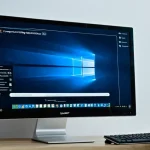How Video Games Foster Problem-Solving Skills in Computing
Video games inherently engage players in complex problem-solving skills that mirror the cognitive demands found in computing. When tackling challenges in a video game, players exercise key cognitive processes such as pattern recognition, hypothesis testing, and iterative troubleshooting. These processes overlap significantly with those required in computational thinking, which is a core component of computer science.
The cognitive parallels between gaming and computing become evident in how both domains demand logical analysis and strategic planning. Video games often present puzzles or strategic scenarios where players must apply logic to progress, much like programmers debug code or design algorithms. This blend of logic and strategy sharpens the mind’s ability to organize information, anticipate consequences, and devise efficient solutions, all vital to effective computing.
Additional reading : What Are the Key Historical Milestones in the Development of Video Games?
Moreover, video games promote the development of algorithmic thinking, as players learn to break down complex tasks into smaller, manageable steps—a hallmark of computational problem solving. Repeated exposure to such environments helps cultivate a mindset comfortable with sequencing, conditional reasoning, and optimization. This experiential learning translates directly to computing skills, where algorithms underpin much of software development and data manipulation.
In essence, video games act as dynamic training grounds. They challenge players to think flexibly and analytically, reinforcing problem-solving skills that are crucial in computer science careers and technological innovation.
Have you seen this : What Are the Key Factors That Enhance Gaming Performance on UK Computers?
Evidence Linking Video Games to Enhanced Computing Skills
Research studies have increasingly demonstrated a strong connection between playing video games and improved computing skills. These studies reveal that gamers often show enhanced abilities relevant to computer science, such as problem-solving, logical reasoning, and spatial awareness. Skill transfer from gaming to computing tasks is a key aspect researchers emphasize, as it highlights how experiences in one domain positively affect performance in another.
One of the most consistently observed improvements through gaming is in pattern recognition. Players who engage with complex games regularly develop heightened sensitivity to visual and logical patterns, a skill indispensable in programming and debugging software. Similarly, troubleshooting abilities also see marked improvement; gamers accustomed to navigating unexpected challenges in game environments learn to diagnose issues quickly and devise effective solutions.
Several personal accounts and case studies reinforce these findings. For instance, individuals with extensive gaming backgrounds report feeling more comfortable with coding and algorithmic thinking. These anecdotal insights align well with experimental results from controlled settings, where participants demonstrate better learning outcomes in computer science courses after engaging in specific gaming activities.
In summary, the weight of current research studies supports the premise that video games can be valuable tools for enhancing crucial computing skills. This evidence encourages educators and learners alike to consider gaming not just as recreation but as a strategic method to boost relevant competencies in computer science.
Examples of Video Games that Build Computing Skills
Some educational games excel at fostering strong computing abilities by combining fun gameplay with skill development. For instance, Portal challenges players with physics-based puzzles requiring precise logical reasoning and algorithmic thinking. Its immersive environment prompts users to plan sequences of actions carefully, which translates well to computational problem-solving.
Another notable example is TIS-100, a game explicitly designed around programming simulation. Players effectively write assembly-like code to solve puzzles, honing their ability to understand low-level code structures and logical flow. This makes it a powerful tool for beginners and experienced programmers seeking to sharpen their skills.
Beyond puzzle and programming games, simulations such as those replicating real-world IT environments provide practical experience with system management and troubleshooting. These games simulate server maintenance or network configuration, offering a hands-on approach to IT training that complements traditional education. Engaging with these environments cultivates familiarity with core computing concepts and prepares players for real-world technical challenges.
By integrating programming games, logic puzzles, and realistic simulations, these video games create an enjoyable pathway to developing essential computing skills. They allow users to practice critical thinking, coding, and system management skills within interactive, motivating contexts.
Practical Ways to Leverage Gaming for Computing Education
Gaming offers a dynamic approach to skill development in IT education by providing hands-on programming practice in an engaging environment. For individuals looking to improve personal computing skills, integrating game-based learning can enhance problem-solving abilities and logical thinking. For example, puzzle and coding games encourage learners to apply programming concepts interactively, reinforcing theoretical knowledge through practical challenges.
Educators can incorporate gaming into the curriculum by selecting titles that align with learning objectives, such as games designed to teach coding languages or simulate network management. This strategy fosters active participation and keeps students motivated, bridging the gap between abstract concepts and real-world applications. Using games as teaching tools allows educators to monitor progress and identify areas where students may need additional support.
Balancing gaming with traditional study methods is essential to maximize educational benefits. Schedule dedicated time for gameplay that targets specific IT skills, but also maintain regular study routines to build foundational knowledge. Combining these approaches creates a comprehensive learning experience that leverages the strengths of both interactive and conventional techniques, ultimately promoting deeper understanding and retention.
Insights Into the Cognitive Processes Shared by Gamers and Programmers
Cognitive psychology reveals overlapping mental skills in seemingly different activities.
Gamers and programmers both engage deeply with problem decomposition, breaking down complex challenges into manageable parts. This mental framework, rooted in cognitive psychology, is crucial for navigating intricate game scenarios or debugging code effectively.
Critical thinking is a shared cornerstone. In gaming, players continuously assess and adapt strategies based on feedback, showing persistence and iteration. Programmers exhibit similar behaviors when refining algorithms or troubleshooting errors. This adaptability enhances digital skills that are valuable across both domains.
Notably, debugging in programming closely resembles problem-solving in gaming. The trial-and-error process in games trains the mind to recognize patterns and employ logical steps to resolve issues. This transferability strengthens cognitive flexibility, making the skill set mutually reinforcing.
Understanding these cognitive parallels highlights how persistence, iterative learning, and adaptable thinking form the backbone of success for both gamers and programmers.




